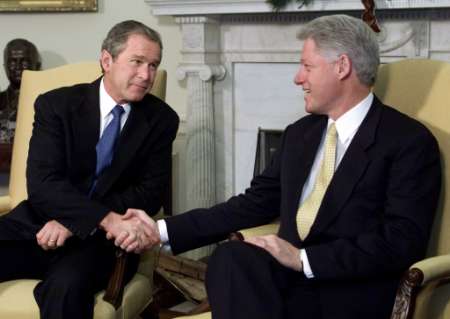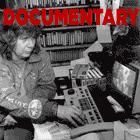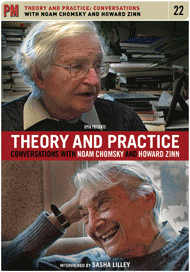A couple quotes and notes as we exit one year and go into the next.
Finished Union Square by Meredith Tax and The Freedom by Parenti. Parenti is three for three on books right now. The writing is serious, sharp, and intensly readable. Tax's Union Square was a sequel to Rivington Street, which was surprising as neither the book cover or people who recommended it managed to mention this fact. It was good, but not as good as the first book. Perhaps this was inevitable as the first book ends on a note of success and this one ends in the great depression just before world war two. What was interesting was how the book covered pre-Israel zionism. Instead of taking a simplistic zionist stand or reducing the storyline to an anachronistic critique gifted with otherworldy hindsight, both which would've been awful, the book places the pre-Israeli debate for a Jewish state firmly in a context of world antisemitic terrorism (Nazism, Pogroms, Immigration quotas), Arab poverty and sharecropping, and Zionist racism and brutish violence. It was handled well. What was handled more perfunctory was the relationship between Blacks and Jews. Tax throws in a token black character and certainly makes a standard response to white racism, even having one of the main characters, a fiery white woman organizer, realize that she had been completely blind to organizing blacks in the sweatshops. But that character could've been Tax who white washes a lot of blacks out of New York. One could argue that Tax's characters, Jewish white female socialists, probably didn't have too mush connection, historically, with blacks organizing in the city, but again this could've been remarked upon and examined instead of simply having the whole issue being nearly omitted. That said, it is still an excellent book.
"I offer neither pay, nor quarters, nor food; I offer only hunger, thirst, forced marches, battles and death. Let him who loves his country with his heart, and not merely with his lips, follow me." Giuseppe Garibaldi

"Who Does not know that kings and rulers sprang from men who were ignorant of God, who assumed because of blind greed and intolerable presumption to make themselves masters of other men, their equals, by means of pride, violence, bad faith, murder, and almost every kind of crime? Surely the devil drove on." Pope Gregory VII (Mar 15, 1801)
"Human law is law only by virtue of its accordance with right reason, and by meansit is clear that it flows from Eternal law. In so far as it deviates from right reasn it is called an Unjust law; and in such a case, it is no law at all, but rather an assertion of violence." St. Thomas Aquinas (
Summa Theologiae, 1a-2a, Q XCIII,
c. 1260)
Searching for a Mac version of Abbyy's finereader.

 "Who Does not know that kings and rulers sprang from men who were ignorant of God, who assumed because of blind greed and intolerable presumption to make themselves masters of other men, their equals, by means of pride, violence, bad faith, murder, and almost every kind of crime? Surely the devil drove on." Pope Gregory VII (Mar 15, 1801)
"Who Does not know that kings and rulers sprang from men who were ignorant of God, who assumed because of blind greed and intolerable presumption to make themselves masters of other men, their equals, by means of pride, violence, bad faith, murder, and almost every kind of crime? Surely the devil drove on." Pope Gregory VII (Mar 15, 1801)
 Just finished the third book in as many weeks: Rivington Street by Meredith Tax. It is like a paperback romance set in the first decades of the twentieth century, except along with the characters bouncing off each other, you also have the different Feminist and Socialist schools of thought kissing as well. The language is quick and utilitarian, reminded one of Bukowski at some points, but it is well written, vibrant, and would be best suited for a younger activist who's just getting started. As the characters go about learning and debating various tactics and philosophies, the reader can't help but pick up a number of really great questions.
Just finished the third book in as many weeks: Rivington Street by Meredith Tax. It is like a paperback romance set in the first decades of the twentieth century, except along with the characters bouncing off each other, you also have the different Feminist and Socialist schools of thought kissing as well. The language is quick and utilitarian, reminded one of Bukowski at some points, but it is well written, vibrant, and would be best suited for a younger activist who's just getting started. As the characters go about learning and debating various tactics and philosophies, the reader can't help but pick up a number of really great questions. Picked up a copy of this Van Gosse book, "The Movements of the New Left, 1950-1975: A Brief History with Documents," which has a nice excerpt from Mario Savio and another good one from Mrs. Fannie Lou Hamer.
Picked up a copy of this Van Gosse book, "The Movements of the New Left, 1950-1975: A Brief History with Documents," which has a nice excerpt from Mario Savio and another good one from Mrs. Fannie Lou Hamer.  Recently finished Detroit: I Do Mind Dying, which was just so good. It's about the Detroit Revolutionary Union Movement and League of Revolutionary Black Workers. Black-led, smart, and dynamic, DRUM and the League didn't die in hail of bullets and had a number of important successes. The only complaint was that it was originally written so soon after it had peaked (It was roughly from 1968 to 1972 and the book was published in 1975), that a much longer afterward about what lasted, what didn't, and why and a "where did everyone end up" section would've been nice. Currently reading, or at least perusing, several books in the
Recently finished Detroit: I Do Mind Dying, which was just so good. It's about the Detroit Revolutionary Union Movement and League of Revolutionary Black Workers. Black-led, smart, and dynamic, DRUM and the League didn't die in hail of bullets and had a number of important successes. The only complaint was that it was originally written so soon after it had peaked (It was roughly from 1968 to 1972 and the book was published in 1975), that a much longer afterward about what lasted, what didn't, and why and a "where did everyone end up" section would've been nice. Currently reading, or at least perusing, several books in the 



